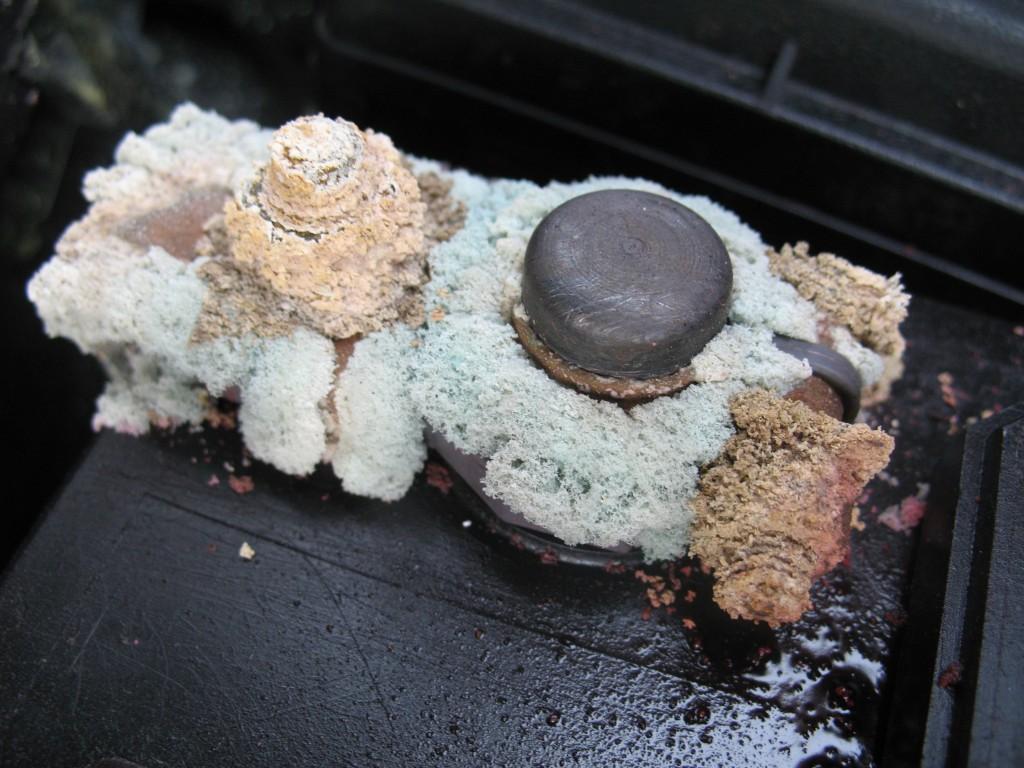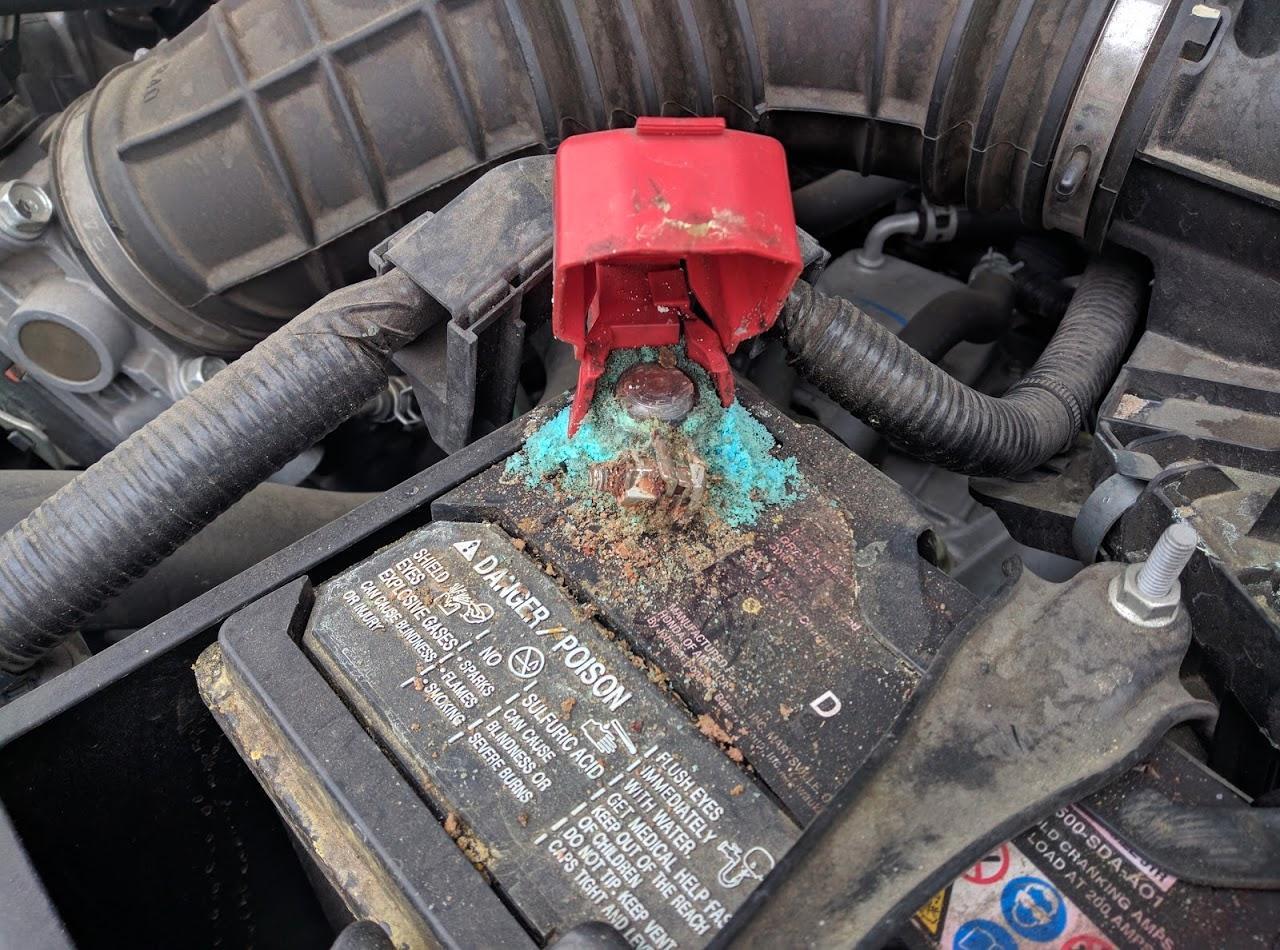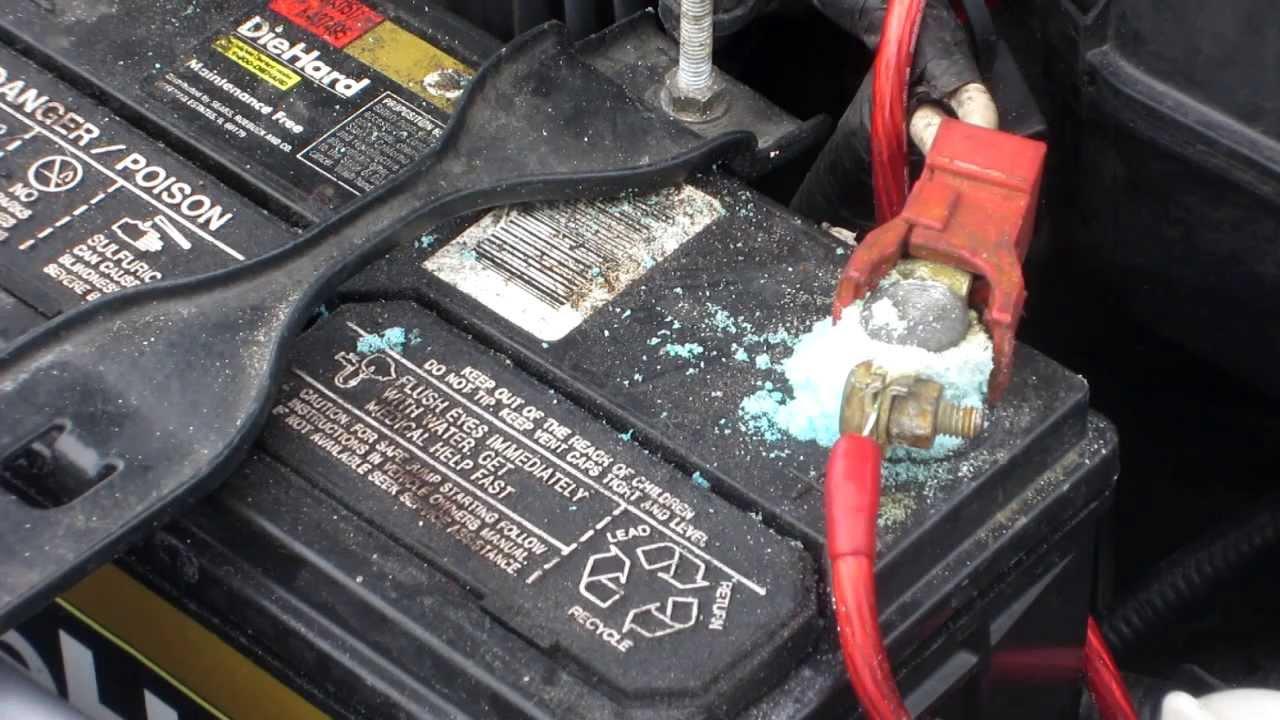If you have ever peeped into your car’s engine bay, you’re familiar with battery terminals. But, if your car is too old, or you have not maintained your car frequently, you are also familiar with battery terminal corrosion.
If you think it’s harmless, because perhaps all old metals end up corroding, it may not be totally true.
Corrosion on battery terminals can be the cause of grave problems in your car engine. At times, it could also be a reason why your car battery and engine break down.
A great idea to avoid a problem is to know why it occurs. And, that is what this blog post does for you – tell you why battery terminals get corroded.
Contents
5 Reasons for Battery Terminal Corrosion
The corrosion on terminals itself is of many kinds, precisely because it happens due to many reasons.
It can differ in appearance, texture and color, depending on its cause. So, here are the top 5 reasons for corrosion on car battery.
Electrolyte Leakage
Leakage in fluids of the car battery is very much possible. When due to damage or lack of proper maintenance, the electrolyte leaks out and accumulates on the terminals, there is corrosion. This happens in case of sealed lead acid batteries.
In case the battery is flooded with lead acid batteries, there is a higher probability of the electrolyte spilling out if you are not meticulous while filling battery water.
In both the cases, the accumulation of electrolyte will cause corrosion. It can even happen to the lithium ion batteries used in hybrid cars.
Overfull Battery
Too much battery water can also cause trouble. One needs to fill it only up till the highest markers and no further up.
Since the terminals are made in metals that can corrode, any excess of water that comes out of vents will cause them to corrode on contact.
Reaction in Copper Clamps
Usually, the clamps that connect the battery to the wires are made of copper. Now, if you do know a little chemistry, you know that copper cannot corrode all by itself.
But, the current that passes through it, produces copper sulfate, thus causing battery terminal corrosion.
It is manifest in the bluish precipitate that forms around the terminals. Needless to say, it can make the terminals weak and harm the health of the battery.

READ MORE:
Overcharging
When they say that excess of everything is bad, charging batteries is certainly included. Yes, overcharging the battery can also lead to corrosion. In case of overcharging, it will heat up.
It also becomes a storehouse of kinetic energy, which causes it to expand in volume. Whether it is the sealed kind or the flooded, it will eventually push the electrolyte out of the vents or cracks (if any). Ultimately, it is the terminals that bear the brunt.
Battery Age
If you have owned the same car for donkey’s years, you are very likely to see the terminals corrode. Why?
Because car batteries come with an expiry date. Even if you maintain the car like it should be, 5 years is the maximum your car battery can serve you.
Beyond that, of course, you will see corrosion. And, your car engine’s performance will tell you that it’s time to change. So don’t hesitate. In fact, you can change an old car battery in several simple steps.

FAQs on Battery Terminal Corrosion
-
Is battery corrosion harmful, and can it damage my car’s electrical system?
Battery corrosion can be harmful. It can hinder the flow of electricity between the battery and the electrical system of your car, leading to voltage drop, poor electrical connections, and difficulty starting the vehicle. In severe cases, it can damage the battery and surrounding components.
-
What causes battery corrosion to become visible?
Battery corrosion becomes visible when the gaseous byproducts of the chemical reactions between the battery’s sulfuric acid and metal terminals react with the air, moisture, and impurities in the environment.
This reaction produces the white or bluish deposits on the battery terminals.
-
How can I prevent or reduce battery corrosion on my car battery?
You can reduce battery corrosion by regularly inspecting and cleaning the battery terminals and connectors. Applying a protective coating, such as petroleum jelly or anti-corrosion sprays, can also help prevent corrosion.
-
Is it safe to clean battery corrosion myself, or should I seek professional help?
Cleaning battery corrosion is a task that many car owners can perform themselves safely.
However, it’s essential to take safety precautions by wearing gloves and safety goggles and disconnecting the battery before cleaning. If you’re unsure or uncomfortable with the process, it’s best to seek professional assistance.
-
Can extreme temperatures or overcharging lead to battery corrosion?
While extreme temperatures can affect battery performance, they are not direct causes of battery corrosion.
Overcharging, on the other hand, can lead to excessive gassing and electrolyte loss, which may contribute to corrosion by exposing the terminals to more sulfuric acid vapors.
-
What are the signs that my car battery may be experiencing corrosion-related issues?
Signs of corrosion-related battery issues may include difficulty starting the vehicle, dimming headlights, or a visible buildup of white or bluish deposits on the battery terminals and connectors.
-
How often should I check and clean my car battery terminals to prevent corrosion?
It’s a good practice to check your car battery terminals and connectors during routine maintenance, such as oil changes or tire rotations. Cleaning should be done as needed, and it’s especially important if you notice signs of corrosion.
-
Can I use household items like baking soda to clean battery corrosion?
Baking soda mixed with water is a commonly used DIY solution for cleaning battery corrosion. It can help neutralize acid and remove corrosion.
However, make sure to follow safety guidelines and thoroughly rinse the area with water after cleaning.
-
If I have persistent corrosion issues, should I consider replacing my car battery?
If you continually experience battery corrosion problems despite proper maintenance, it may be a sign of an aging or damaged battery.
In such cases, it’s advisable to have the battery tested by a professional to determine if replacement is necessary.
Check out this video from 1A Auto to learn more about trucks and cars’ battery corrosion!
The best way to avoid corrosion on car battery is to keep up the car service schedule and follow the right car maintenance advice.
Make sure that you are neither overusing your car battery by using AC and car gadgets when the car isn’t running, nor underutilizing it with only short trips. Keeping your car battery in a good shape can help avoid corrosion.




Wonderful titbits
Thanks for the article.Its very necessary to service the car as per the schedule.To keep running your car for a long you need to maintain it.Its difficult to do by yourself and may sometimes miss out some parts to check so its better to give it for servicing.
There’s definately a great deal to find out about this
topic. I like all the points you made.
An impressive share! I’ve just forwarded this onto a coworker who was conducting a
little homework on this. And he actually ordered
me dinner due to the fact that I found it for him…
lol. So allow me to reword this…. Thank YOU for the meal!!
But yeah, thanks for spending some time to
discuss this issue here on your internet site.